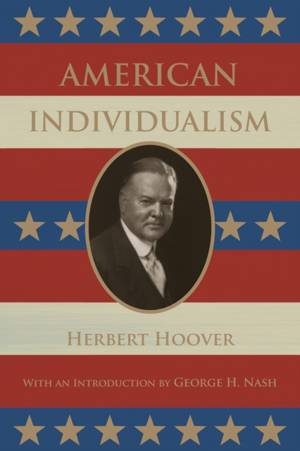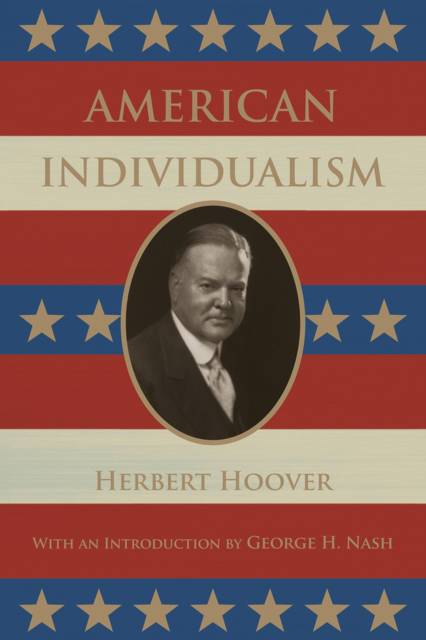
- Afhalen na 1 uur in een winkel met voorraad
- Gratis thuislevering in België vanaf € 30
- Ruim aanbod met 7 miljoen producten
- Afhalen na 1 uur in een winkel met voorraad
- Gratis thuislevering in België vanaf € 30
- Ruim aanbod met 7 miljoen producten
Zoeken
Omschrijving
In late 1921, then secretary of commerce Herbert Hoover decided to distill from his experiences a coherent understanding of the American experiment he cherished. The result was the 1922 book American Individualism. In it, Hoover expounded and vigorously defended what has come to be called American exceptionalism: the set of beliefs and values that still makes America unique. He argued that America can make steady, sure progress if we preserve our individualism, preserve and stimulate the initiative of our people, insist on and maintain the safeguards to equality of opportunity, and honor service as a part of our national character. American Individualism asserts that equal opportunity for individuals to develop their abilities is "the sole source of progress" and the fundamental impulse behind American civilization for three--now four--centuries. More than ninety years have passed since this book was first published; it is clear, in retrospect, that the volume was partly motivated by the political controversies of the time. But American Individualism is not simply a product of a dim and receding past. To a considerable degree the ideological battles of Hoover's era are the battles of our own, and the interpretations we make of our past--particularly the years between 1921 and 1933--will mold our perspective on the crises of the present.
Specificaties
Betrokkenen
- Auteur(s):
- Uitgeverij:
Inhoud
- Aantal bladzijden:
- 100
- Taal:
- Engels
Eigenschappen
- Productcode (EAN):
- 9780817920159
- Verschijningsdatum:
- 1/12/2016
- Uitvoering:
- Paperback
- Formaat:
- Trade paperback (VS)
- Afmetingen:
- 112 mm x 175 mm
- Gewicht:
- 113 g

Alleen bij Standaard Boekhandel
+ 19 punten op je klantenkaart van Standaard Boekhandel
Beoordelingen
We publiceren alleen reviews die voldoen aan de voorwaarden voor reviews. Bekijk onze voorwaarden voor reviews.








